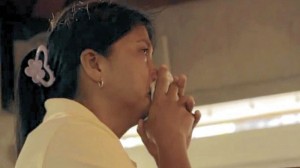LOS BAÑOS, Laguna – She was a lot more than just the perky “sampaguita girl,” who was found brutally raped and murdered right in the heart of a university community.
Rochel Geronda was 14 when she was killed on Feb. 29, only four months after the rape-slay of University of the Philippines Los Baños (UPLB) student Given Grace Cebanico. On March 4, another UPLB student, Ray Bernard Peñaranda, was also killed by robbers, leaving a deep, painful scar on students and their families.
“I myself got so scared that I wouldn’t go out at night. Because whether these were isolated cases, you couldn’t help but wonder why these happened, almost one after another just in a single year,” said 22-year-old fourth-year communication arts student Pol Singson.
On Dec. 6, two more UPLB students, Mark Lorenz Valdez and Kevin Lagadon, both 18, died inside the UPLB compound, although authorities said they drowned in a stream up in Mt. Makiling.
Still, Singson observed there were no such incidents of killings and accidental deaths since the 1993 double murder of UPLB students Eileen Sarmenta and Allan Gomez. This prompted him and UP Open University Associate in Arts student Matt Baguinon to collaborate on the documentary film, “Rochel.”
“Rochel” is a one-hour film that chronicles the everyday life of Leilani Geronda and her four other young children, after her daughter Rochel was killed.
Almost every day since they started filming in June, Baguinon, who is also taking part in a one-year filmmaking workshop of Goethe-Institut, joined the Gerondas the moment the children left for school and Leilani started attending to her sari-sari store.
Goethe-Institut is a cultural institute of the Federal Republic of Germany.
“Here is a mother who is coping with the loss of her daughter with a case still ongoing and at the same time making ends meet for her other children,” Singson said of Leilani.
Rochel’s family lived in a slum area in Barangay Batong Malake here. Her father rarely came home from working as a cigarette vendor in Manila, while her three older siblings lived separately with their own families. The fourth in a brood of eight, Rochel, who was a student at Los Baños National High School, had to sell sampaguita leis after school hours inside the campus to help in the family’s expenses.
“They are struggling but they don’t make their lives pitiful. The children are raised to be obedient and disciplined. Many do not value education, but these children, they even get mad when they are late for school,” Singson said.
He said it was the everyday conversations of the family and the neighborhood that “humanized” Rochel in the film.
The film focused on Rochel not only because her case, among those of the victims, received less attention. Born and raised here, Rochel “could be [a] more compelling and relevant character as [she] presents to the audience what their community has become,” Singson said.
“It is a social commentary. It presents different dimensions —from a mother searching for justice, to politics. While many nowadays are busy talking about gadgets and the menial stuff, these people talk about the security in their community,” he said.
“Rochel” was first shown on Dec. 12 at the Goethe-Institut panel in UP Diliman and is set to be screened on Jan. 18 and 19, 2013 in UPLB.


